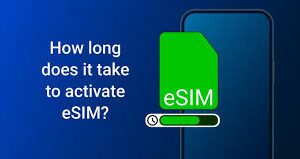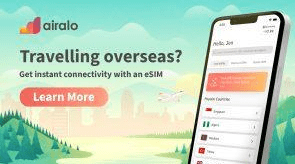As a globe-trotter who once juggled numerous physical SIM cards, each representing a chapter of my adventures, the emergence of eSIM technology has revolutionised not just how I stay connected, but how I experience travel itself. This guide delves into the eSIM versus physical SIM debate, offering insights from a traveller’s perspective, supported by WorldSim’s pioneering solutions in global connectivity.
The Basics: eSIM vs Physical SIM
The traditional physical SIM card has been a staple of mobile communication, physically inserted into your device to access a network. Conversely, an international eSIM (Embedded Subscriber Identity Module) is a digital SIM that allows you to activate a cellular plan without the need for a physical card.
Why eSIM?
- Seamless Global Connectivity: With a global eSIM, the world feels smaller. I’ve hopped from the cobblestone streets of Rome to the sandy shores of Bali without losing connection or swapping SIMs. It’s about staying connected wherever your travels take you, with the best international eSIM seamlessly switching between networks.
- Cost-Effective: Worrying about roaming charges can put a damper on any trip. Opting to buy an eSIM often means choosing a more cost-effective way to manage your data abroad. WorldSim offers competitive rates that cater to the savvy traveller, ensuring you’re always connected without breaking the bank.
- Convenience: Remember the hassle of finding compatible SIM cards in each new country? The eSIM eliminates this, offering a straightforward setup through your device’s settings. It’s the convenience of arriving at your destination ready to explore, without the first stop being a mobile phone shop.
- Eco-Friendly: In today’s world, every little effort towards sustainability counts. The shift from physical SIM cards to eSIMs reduces plastic waste, aligning your travel habits with eco-conscious practices.
WorldSim’s eSIM: A Traveller’s Experience
My transition to WorldSim’s eSIM was driven by the promise of hassle-free travel connectivity. The process was simple: select a plan, scan a QR code, and just like that, my phone was equipped with data in over 190 countries.
- Coverage: Whether it was sharing photos from a secluded beach in the Philippines or video calling home from a café in Paris, WorldSim’s eSIM provided unparalleled coverage, making it clear why it’s considered the best international eSIM option for travellers.
- Flexibility: Plans change, and flexibility is key. With WorldSim, I could top up my data as needed or switch plans based on my travel itinerary, ensuring I always had the right amount of data at the right price.
- Support: Venturing into the unknown can be daunting, but knowing that support was just a message away provided peace of mind. WorldSim’s customer service was responsive and helpful, addressing any queries I had about my eSIM service.
Physical SIM’s Place in Today’s World
Despite the advantages of eSIM technology, physical SIM cards still have their place, particularly for devices not yet eSIM compatible or for those who prefer tangible control over their connectivity options. The choice between eSIM and physical SIM ultimately depends on personal preference, device compatibility, and travel needs.
Conclusion: The Verdict on eSIM vs Physical SIM
As we venture further into the digital age, the eSIM stands out as the future of travel connectivity, offering a blend of convenience, cost-effectiveness, and coverage that traditional SIM cards struggle to match. For travellers seeking a seamless way to stay connected across borders, the eSIM, particularly WorldSim’s International eSIM solutions, represents a leap towards a more connected and hassle-free travel experience.
As I reflect on my journeys, the freedom and simplicity that the eSIM has brought to my travels have been nothing short of transformative. It’s not just about staying connected; it’s about enriching your travel experience, making every destination more accessible and every adventure more shareable. In the debate of eSIM vs physical SIM, for the modern traveller, the eSIM is the clear winner.
Read More From Techbullion



































